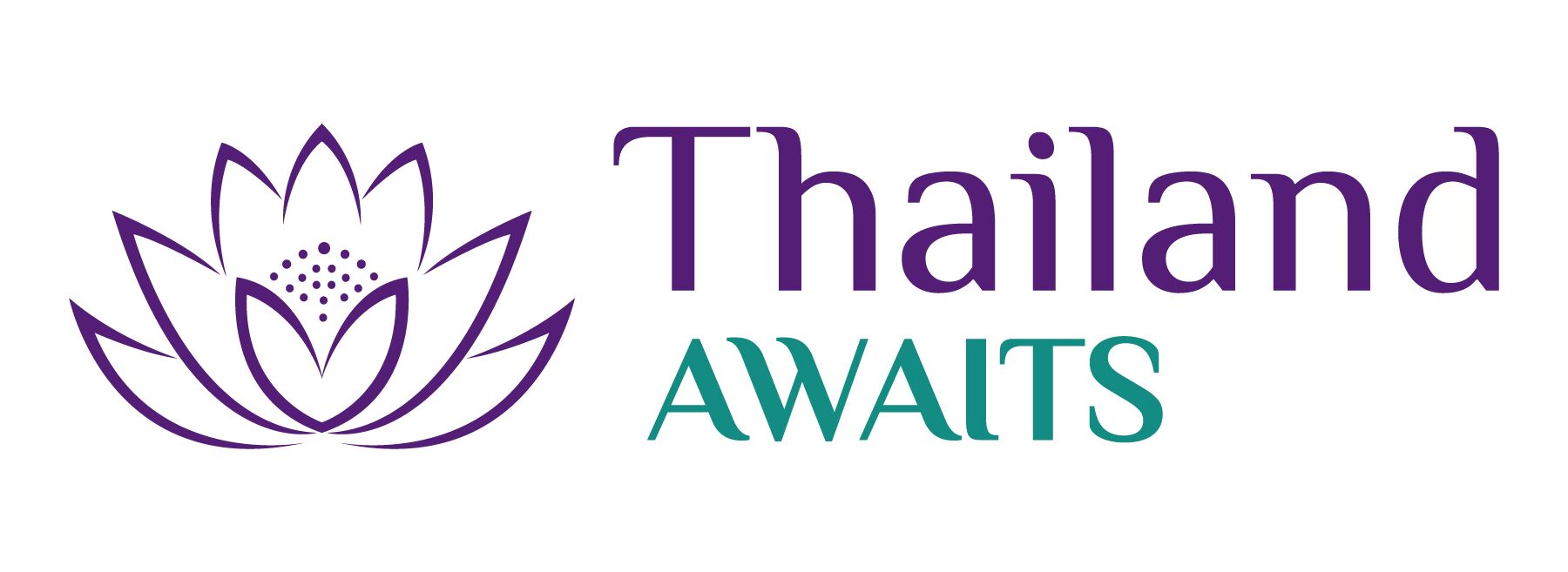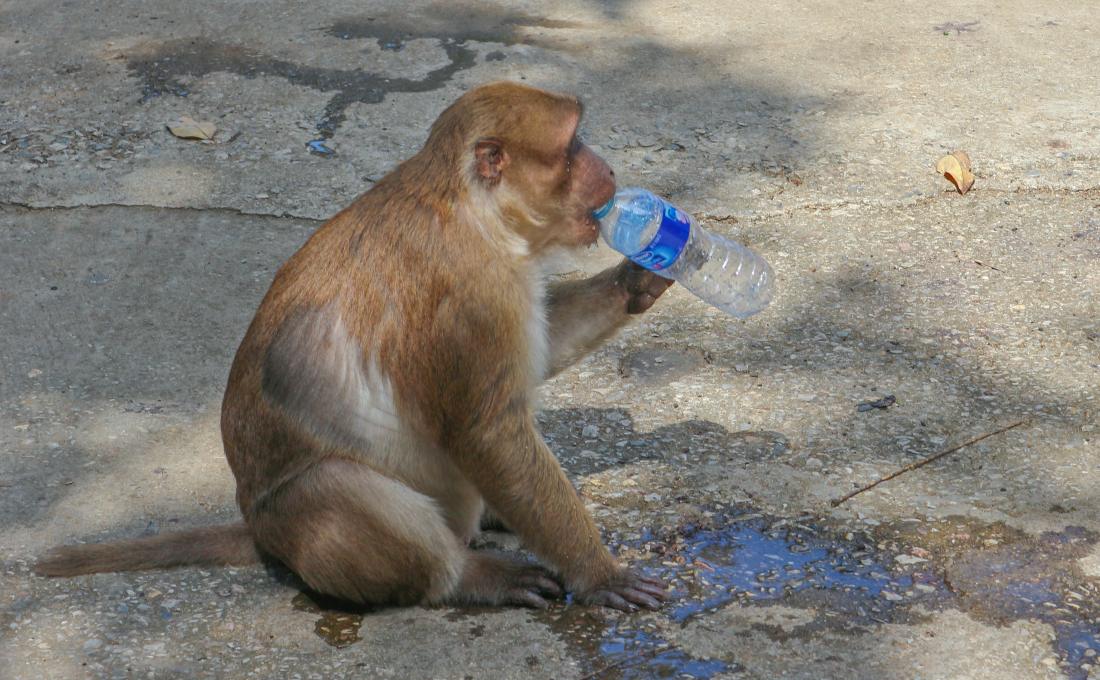If you’re planning a trip to the land of smiles, you may wonder if you can drink the water in Thailand. In this article, you’ll get all the facts and practical information about drinking tap water, water quality, filtered and bottled water, and using it for showering, swimming, and brushing teeth.
This page contains affiliate links. Please see our disclosure policy for more details.
Where Does Thailand’s Drinking Water Come From?
Most of Thailand’s drinking water comes from two sources: surface water and groundwater, with surface water making up about 70% of the supply.
Most of the water is collected from rivers, particularly the Chao Phraya and Mekong, and stored in almost 1000 dams across the country. The biggest is the Bhumibol Dam on the Ping River, part of the Chao Phraya system.
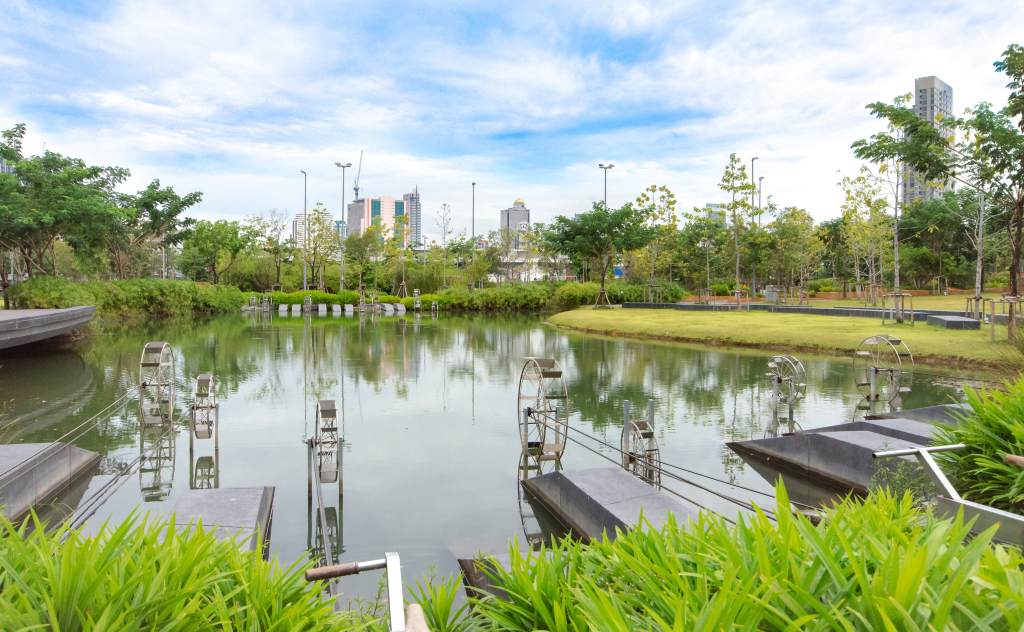
Groundwater makes up 30% of Thailand’s water supply, extracted from wells and springs. It’s used most in the Central Plains and Northeast regions, tapping into large aquifers. There are at least 20,000 registered wells in Thailand.
Thailand’s Metropolitan Waterworks Authority serves over 11 million people in and around Bangkok. Its water treatment plants align with World Health Organization standards, using sedimentation, filtration, and disinfection processes.
In Bangkok, the Metropolitan Waterworks Authority (MWA) supplies treated and chlorinated water to eliminate bacteria and parasites. The MWA conducts over 300,000 water quality tests annually to ensure safety standards.
Now you know where Thailand’s water comes from and how it’s treated, but will you get sick if you drink it?
So is it Safe to Drink Tap Water in Thailand?
The tap water quality varies across Thailand.
It’s safe to drink tap water in Bangkok because it meets Thai FDA standards. Although it contains traces of heavy metals like lead, it is still within legal limits in Thailand.
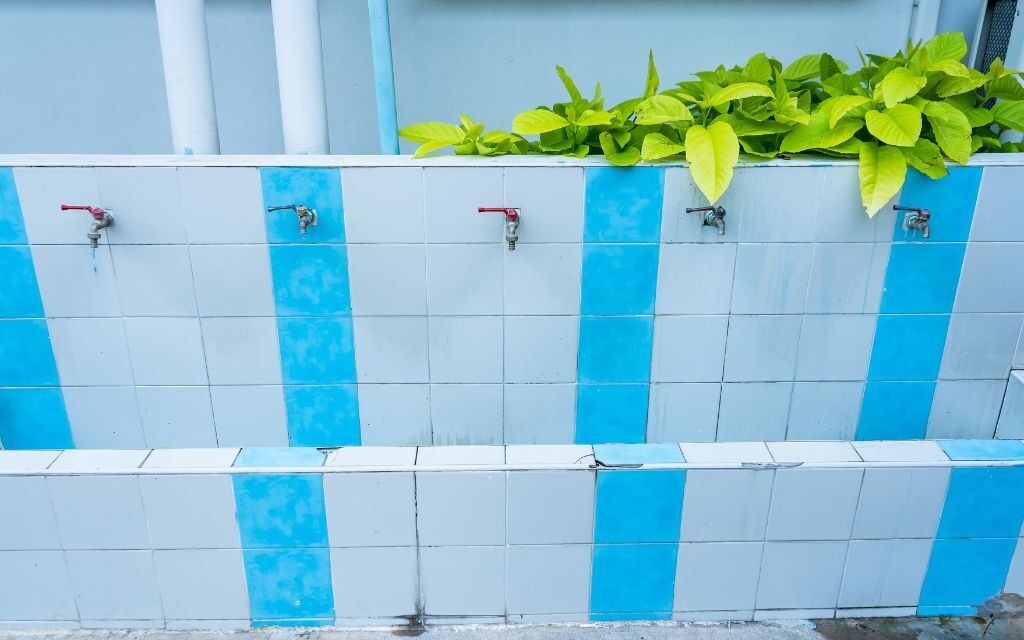
I don’t like the lead content in Thailand’s drinking water and neither do the locals. That’s why they drink over 45 billion liters of bottled water annually.
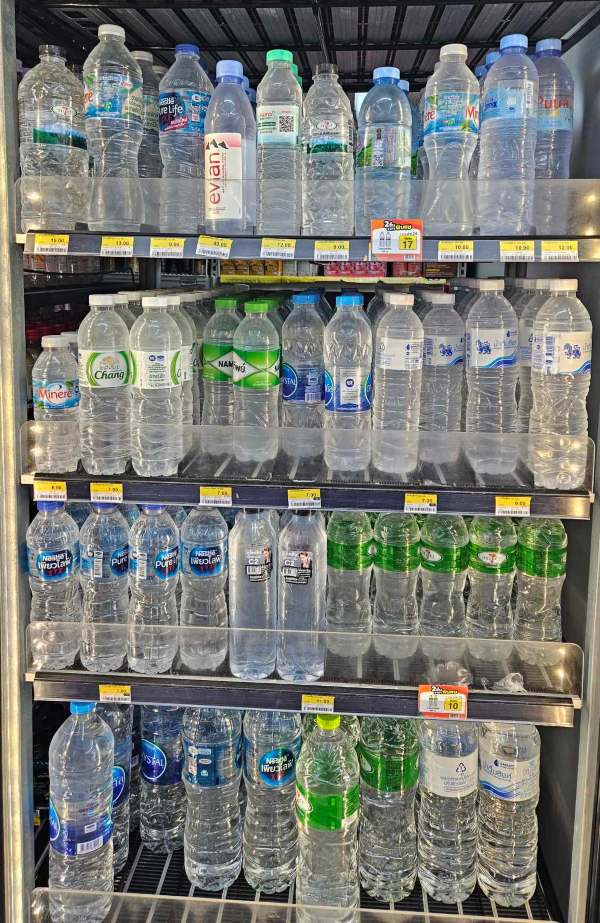
In rural areas, water quality might be lower than in Bangkok due to less rigorous treatment and/or outdated pipe systems, so I don’t drink tap water there.
Drinking unclean tap water can cause illnesses like travelers’ diarrhea, typhoid, and Hepatitis A, especially for travelers unaccustomed to local microbes.
If you’re not used to Southeast Asian food and water, it’s safer to use bottled water for drinking and brushing teeth to avoid stomach issues.
Can I brush my teeth with Thailand tap water?
Tap water in major cities, which undergoes rigorous treatment, should be safe for brushing teeth. There may be a risk in rural areas with lower purification standards.
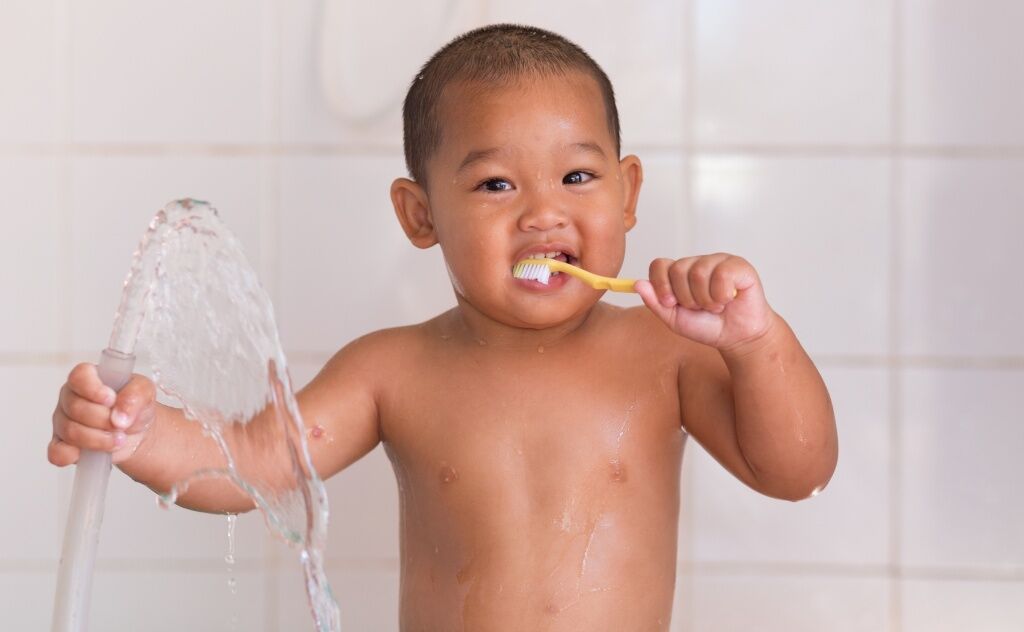
Seasoned travelers and health experts recommend using bottled water for brushing teeth to be cautious.
Boil tap water for at least a minute or use water purification tablets or portable purifiers to kill bacteria and parasites.
I always brushed my teeth in Thailand with boiled water, but now I use a water purifier bottle.
Most hotels provide water bottles in the bathroom for brushing teeth, and replenish them daily.
It’s possible to use tap water for brushing teeth in Thailand, but it’s safer to avoid, especially outside major cities.
Public Filtered Drinking Water Dispensers
Thailand has improved access to clean water with initiatives like providing free filtered tap water through public drinking fountains.
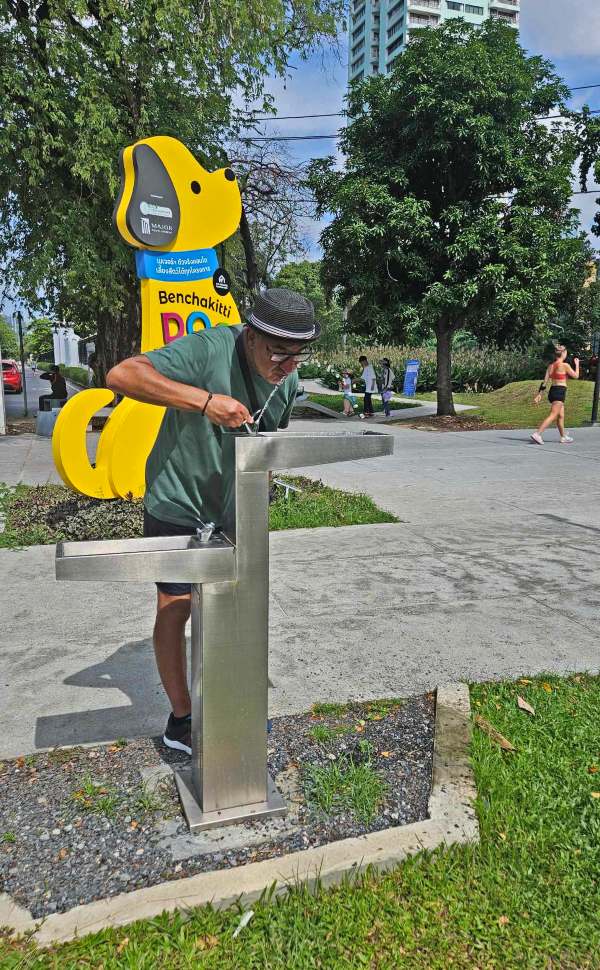
Filtered water stations in public spaces provide free and safe drinking water.
They are frequently maintained and monitored for quality. So, whether you’re at a park, museum, or any public space, you can fill up your water bottle for free and know you’re drinking safe and clean water.
Should I drink Bottled Water in Thailand
As a traveler, it’s safer to drink bottled water in Thailand. There are literally dozens of local brands and all taste slightly different. You may prefer the taste of water from home. If so choose a brands you are familiar with.
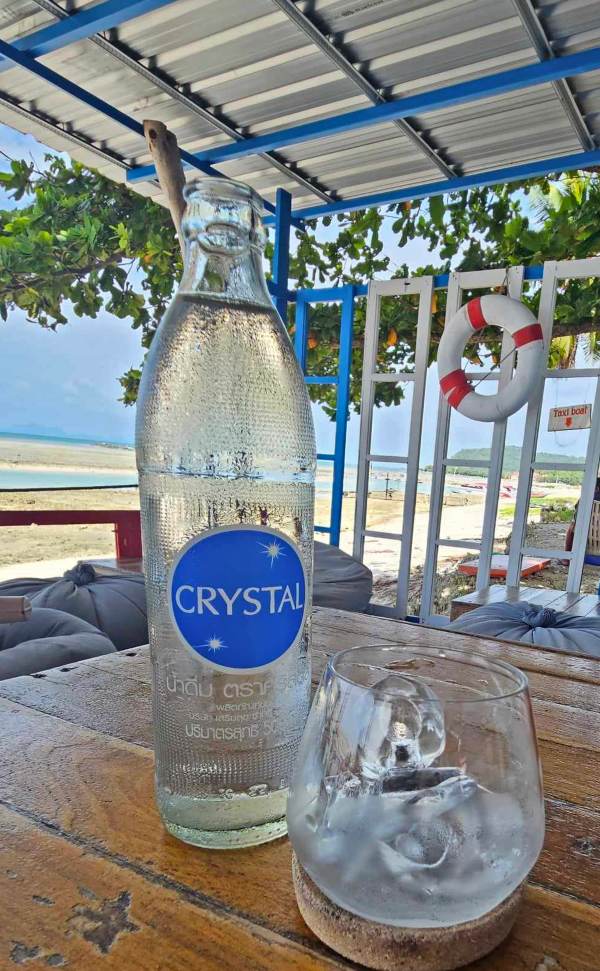
Bottled water is cheap and easy to find throughout the country. International brands, mineral-enriched, or pure spring water are available in city stores.
Check the seal before drinking to avoid contamination.
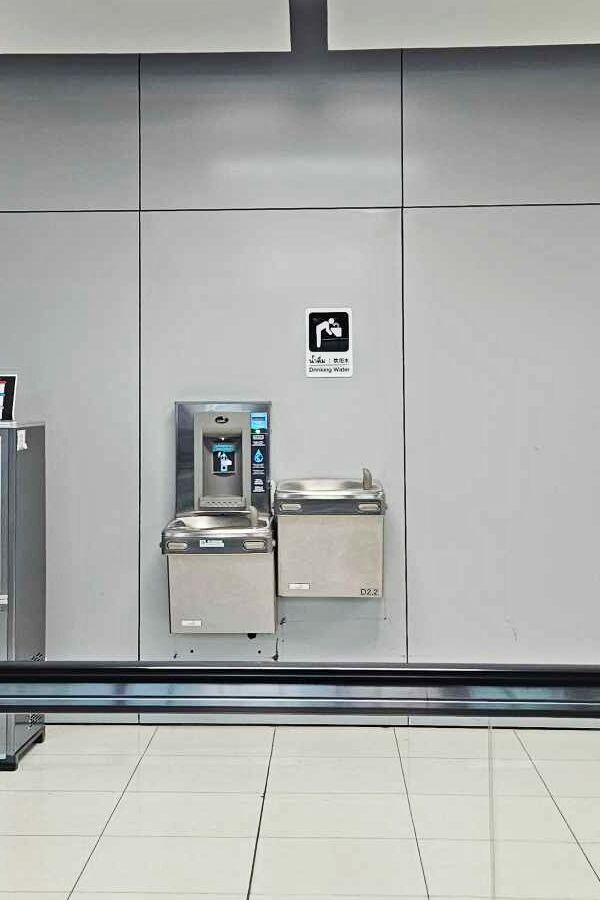
However, it’s worth noting the environmental implications of consuming bottled water. The production and disposal of plastic bottles contribute to pollution and resource depletion.
Consider the environmental impact of consuming bottled water. The production and disposal of plastic bottles contribute to pollution and resource depletion.
Reusable Filter Water Bottles
Consider bringing a reusable water bottle with a built-in filter. It’s more eco-friendly and avoids the health risks of disposable plastic bottles.
This strategy balances personal comfort and ecological responsibility, minimizing your environmental impact.
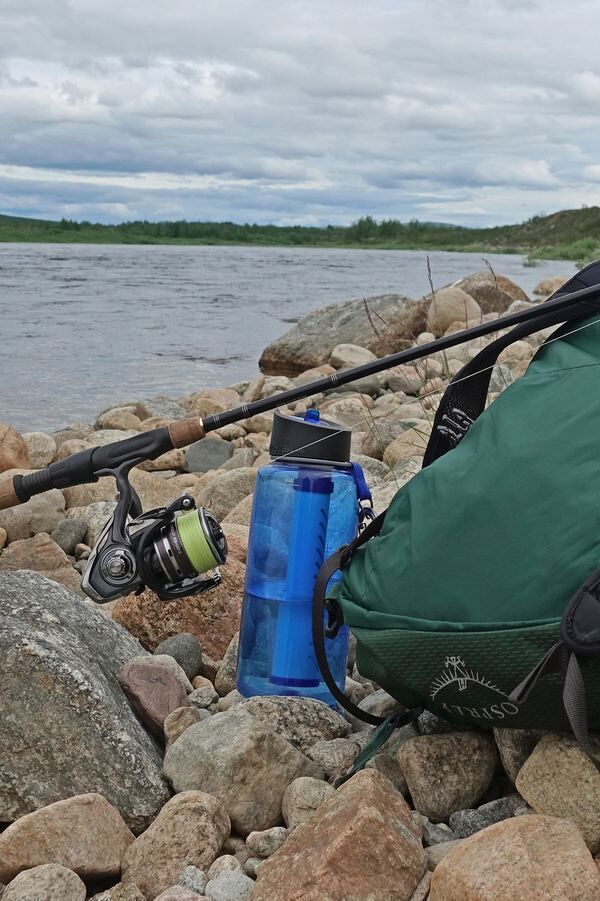
The built-in filters use activated carbon, microfiltration, or UV sterilization to remove contaminants, reduce chlorine taste, and may eliminate harmful bacteria and protozoa.
This means you can use tap water for brushing your teeth and drinking, and be prepared for off-the-beaten-path adventures where water safety might be a concern.
These water filter bottles are a great solution for eco-conscious travellers. They reduce reliance on single-use plastic and environmental pollution and waste.You’ll save money over time, especially in places where bottled water is expensive. Filtered water bottles keep you hydrated and responsible, whether you’re in a cafe or hiking in the mountains around Chiang Mai.
If you get ill
When traveling in Thailand, it’s essential to think about water safety, especially when it comes to what you drink. Even in popular tourist spots, the water quality can vary, and drinking contaminated water can quickly turn your dream trip into a nightmare and result in a case of Bangkok belly.
For most people that might not be a big deal but it can be. That’s why having good medical travel insurance is a must. We recommend SafetyWing for digital nomads and travelers. Their insurance is not only affordable but also designed with flexibility in mind, offering coverage no matter where you are in the world.
Whether it’s a minor stomach upset or something more serious, SafetyWing has you covered, allowing you to explore with peace of mind. So, while you’re enjoying the incredible experiences Thailand has to offer, make sure you’re protected with the right insurance. It’s a small step that can make a big difference in keeping your travels safe and enjoyable.
Frequently Asked Questions about Tap Water in Thailand
Can I brush my teeth with tap water in Thailand?
Brushing your teeth with tap water in Thailand is generally safe. The treated water is usually free of bacteria and contaminants. However, if you have a sensitive stomach or are not used to it in Thailand, it’s best to use bottled water.
Can you drink the water in Phuket?
Drinking water in Phuket is generally safe because it is treated and usually free of bacteria and contaminants. However, some people may experience stomach discomfort if they are not used to it. If you have a sensitive stomach, it’s best to use bottled water.
Can you have ice in Thailand?
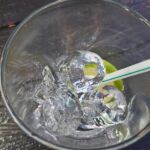
Across Thailand, you can use ice made from purified or bottled drinking water. It’s safe. Ice made using treated water is commercially produced. You can tell if it has been made this way by its shape. It is usually symmetrical and often looks like a hollow cylinder.
Can I use tap water to wash my face?
Yes, you can wash your face with tap water in Thailand. It’s treated and generally safe for non-consumptive uses. Avoid getting water in your mouth.
Is shower water safe in Thailand?
Yes, shower water in Thailand is safe. The supply in urban and tourist areas is treated to remove harmful contaminants, making it safe for bathing. However, it’s wise to avoid swallowing, especially if you’re not accustomed to the local water supply.If you’re in rural areas with less advanced treatment, keep your mouth closed during the shower to minimize risk.
Do Thai people drink their own tap water?
Thai people generally drink boiled tap water to kill bacteria. In remote areas, they drink bottled water due to lower tap water quality.
Can you drink the water in Thailand?
In urban areas like Bangkok, tap water meets health standards but may taste different. Treatment varies in rural areas. Visitors prefer bottled water, widely available and inexpensive, to avoid stomach discomfort.
Is iced coffee safe in Thailand?
Iced coffee in Thailand is safe from reputable cafes, restaurants, and street vendors due to strict regulations about ice production. If unsure or have a sensitive stomach, ask if the is made with purified water.
